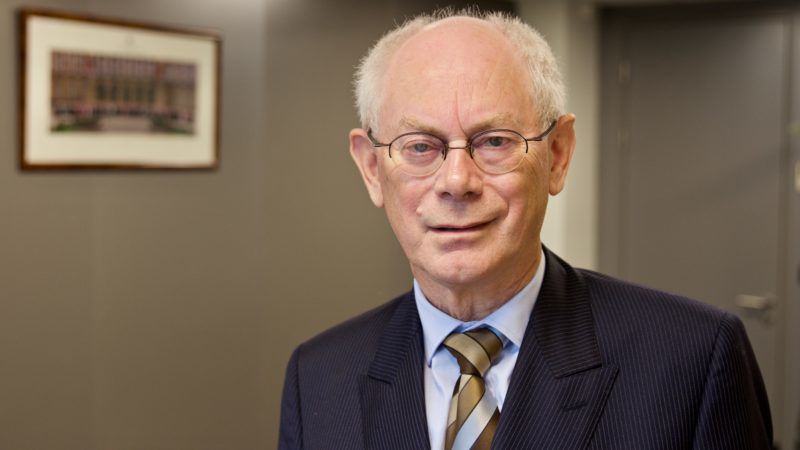
This is a transcript of a talk by Herman during an online seminar organized by WCCM Belgium, 6 March, 2021
“Meditating on meditation, I would like to offer a few thoughts on why meditation has a place in today’s society.
First of all, meditation is at odds with the ‘spirit of the times’. It is not useful, not noisy, not hurried, not polarising, not aimed at personal success. The list is long. I do know that there is a growing interest in and need for spirituality, but that is only the case for a small group.
Meditation is done in silence. It is an exercise in conscious living, away from superficial activism. It is the way inwards, a kind of ‘Innere Emigration’. Silence and the sacred go together. An untrodden path, by the way, evokes silence. How can one be open to something and someone if one is always talking or making ‘noise’? Thinking is also only possible in silence. Silence is a necessary but not sufficient condition for meditation.
Meditation is also an act of humility because we submit ourselves to the mantra, to something unusual, because we ‘let go’ of some classical control over our actions and let ourselves surrender and open up to the unknown. Instead, as a result of meditation, we gain more control over our lives because we give up the addiction to assertiveness, to ‘be busy’, in short, to selfishness. We learn humility through meditation also because the seemingly simple recipe of reciting the mantra remains difficult.
The mantra makes us live in the ‘here-now time’. For a moment there is no more yesterday and no more tomorrow. Experience shows that in the post-mantra, the better I emerges because the nagging I is put in brackets for a moment. We then become more open to other people. We become more empathetic towards our fellow human beings. We are more able to empathise with the other person, to grasp him or her better (without wanting to possess). Empathy is also a sign of ’emotional intelligence’. Meditation is an exercise in ‘becoming free of’ on the way to ‘becoming free for’. We must first free ourselves from bad habits so that space can be “freed” for positive feelings and thoughts. Positive always means: focused on the other, outside and above me.
As a beginning meditator, I experience the practice as first and foremost liberating. During meditation, I fight the ‘worries of the world’ that come at me and lay siege to me. Reciting the mantra is, as it were, pushing back the enemy, repelling attacks on my inner self. With success, by the way, but it remains a struggle. The beneficial influence comes after meditation, at least for me.
During meditation, I experience an absence of my own concerns and vanity rather than the presence of God. I am not ready for that myself today. The humility and openness that meditation brings afterwards, however, is a “footbridge” to goodness and divinity. But a footbridge is not stable.
The meditator is not someone who is carefree or thoughtless, but someone who presses the pause button during meditation. ‘Reculer pour mieux sauter’. Jump to what? As a result of meditation we see more clearly in the other (empathy) but also potentially more receptive to God’s voice. The God seeker wonders what God wants from me or why God would care about me and why he apparently does not do so with so many innocents. The humility of “letting go” in meditation also makes us accept that many questions, mysteries, remain for people about life and death, about justice. We trust that God does have answers even if they are still partly hidden from us. In Greek, the word for truth is ‘alètheia’, the uncovered. Only God knows the truth. He knows what is still hidden for us. This trust in God is called faith. In Latin, ‘fides’ means faith, but it also means loyalty and trust. In French, believers are called ‘fidèles’, those who are faithful, those who trust.
This whole démarche of meditation should give us more authenticity, more veracity. It teaches us not to want to be someone who projects a certain image of himself onto others. Someone is authentic when there is no distance between seeming and being, ‘what you get is what you see’. The authentic person is not a slave to an image. The authentic person is himself. The question remains: what is my real Self? We know when we are not ourselves, we feel when we are not authentic and lie to ourselves, but therefore we do not yet know our true Self. That too is a search. We come closest to it when we seek to do the good, which ultimately gives meaning to our lives. The true self is the good self. The meditator has shed much ego so that he has created space to become a better person and thus to contribute better to a better world or, to put it another way, to the Kingdom of God.
Needless to say, the meditator breaks with a piece of the ‘zeitgeist’ and with the ‘rulers of the world’: money, power and success, each as an end in itself. It takes a little courage to meditate because it is a break with the ‘laws of the world’.
Many come to meditation out of necessity, after a crisis, rather than as a choice. I myself came across meditation by chance. It was on my path. I was ripe for the encounter. That encounter with meditation was coincidental but I then helped the coincidence. Coincidence has improved my life or rather I have improved!
The lock-down paved the way for me to meditate. I am one of the privileged ones who were able to take shelter and stay healthy for a year. Since the lockdown, all my appointments for lectures on the move fell away. A large number I held and hold on line. The life of five lectures a week at home and abroad ceased to exist. I took the plane once since March 2020 because there was no other way. I appeared twice in my office in Brussels. By the way, I don’t see me starting that rat race again in the post-Corona era. The experience I had is well summed up in the wise words of an unknown New Yorker at the start of the pandemic: ‘My world may have flipped, but my priorities are falling back into order’.
I had known Laurence Freeman for a few years through a mutual friend. He spoke to me about meditation but I held back. It was not for me! At the time I had promised Laurence to come to Bonnevaux at the first opportunity. Coincidence helped because in June this year a short corona holiday was planned in the region of the Gironde and the Dordogne. Bonnevaux was not so far. We stayed there for only two nights but it left an unforgettable impression, not least because it is beautifully located and the ancient buildings rose from their ruins. Old and yet new. A magical place. In preparation for my visit to Bonnevaux and even more so afterwards, I started to meditate. So I am a neophyte, a Sunday painter, but that doesn’t stop Laurence, José and others from asking me to talk about meditation as if I were a veteran!
So meditation for me is not a conversion like Paul on the road to Damascus, a sudden discovery that changes your life. It is still a discovery but for me it is rather a crowning achievement. There is the coincidence of discovery – had I not met Laurence I would not be here tonight – and there is a kind of preparation or predestination on the other hand, guided by your life prior to meditation.
Meditation may not lead to a lesser societal commitment but to a different type where one distinguishes the meaningful from the less meaningful, in other words, the important from the less important. But what is the criterion for making that distinction? What are the ‘priorities’ of the New Yorker? The Self must not disappear, but the selfish Self must. The best Self must emerge. Selfishness is self-murder’, says Turgenev, the great Russian novelist of the 19th century. He adds: ‘A selfish man withers away, like a lonely tree without fruit’.
Here, too, one must not fall into extremes. Self-awareness, self-confidence, self-respect are valuable because we cannot live without them, but selfishness must go.
In avoiding selfishness, we must be careful not to pursue an un-human goal only reachable for saints. That would lead to perpetual frustration. We can be improved, but perfection is not of this world. We are not saints, not Good Samaritan, but we can become holier or just better. Meliorism.
I apply the latter concept to the world I know best. If I were asked what the connection is between meditation and politics, my answer would be that a meditator is not necessarily a good policy-maker and vice versa. What I can say is that meditation helps to detach one from short-term thinking and the pursuit of purely personal interests. Meditation helps to find the right inspiration for politics, the focus on the common good, the common good. More than other activities, politics is caught in the maelstrom of daily ‘events’, incidents, statements by this or that person, by the twitterrage, the unexpected. It is called ‘the delusion of the day’. We are all in the mood for ‘kicks’ but politics certainly is. The meditator-politician would be less susceptible to this. For me, however, it is too late, since I have left politics. But I was a meditator in the making then, as I said earlier. Maybe in a way I was a meditator without realising it.
Meditation goes against the tide but I am convinced that the present spirit of the times is temporary. Deep in the hearts of many, there is a longing for something more satisfying and meaningful. Superficiality and individualism are increasingly reaching their limits. The many diseases of civilisation, the social unease, the lack of happiness, are sad proof of this. We speak of the ‘century of loneliness’. Meditation contributes to ‘healing’ a society. Therefore, not meditation in the full sense of the word, but silence, detachment, being touched by nature and by small goodness, being touched by the sacred and the divine.”
“I’d like to end with a haiku…”
The meditator
breathes slowly with the mantra
Desert of silence

